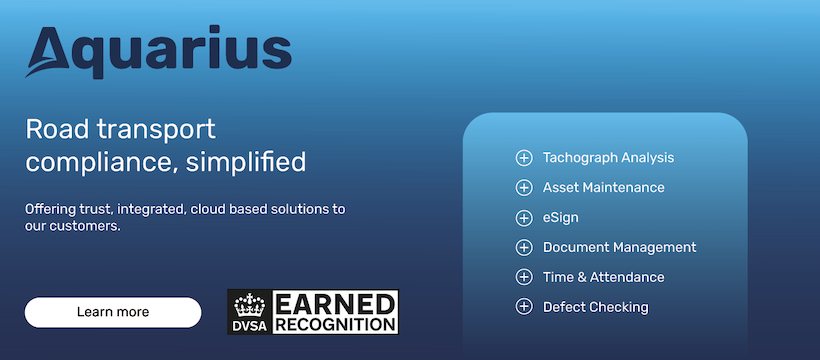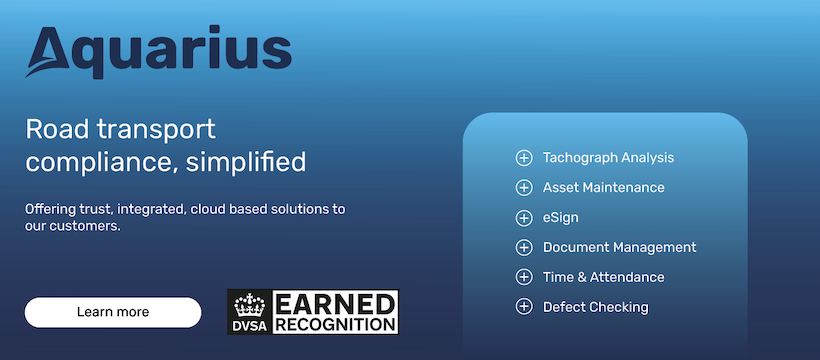Technological Advancements in Logistics: What’s Shaping the Future

The logistics sector is undergoing significant changes, driven by technological advancements that streamline operations, enhance efficiency, and reduce costs. Innovations in this field are not just reshaping how goods are transported but also how logistics companies manage their entire supply chains. Automation and Robotics
Automation and robotics are at the forefront of technological advancements in logistics. The use of automated guided vehicles (AGVs) and autonomous mobile robots (AMRs) is increasing rapidly. These robots handle various tasks, from transporting goods within warehouses to sorting and picking items, thereby reducing the reliance on manual labour.
By improving accuracy and efficiency, these technologies help businesses meet increasing consumer demands. In warehouses, forklifts have been essential tools for decades. Modern developments have introduced electric counterbalance forklifts, which are more environmentally friendly and efficient.
A reliable forklift supplier can provide businesses with the latest models that incorporate advanced safety features and ergonomic designs. These electric counterbalance forklifts are crucial in reducing carbon footprints and operational costs. Internet of Things (IoT)
The Internet of Things (IoT) is another significant trend revolutionising the logistics industry. IoT devices enable real-time tracking of goods, ensuring transparency and improved management of supply chains. Sensors attached to shipments provide data on location, temperature, and humidity, helping to maintain the quality of goods during transit.
Logistics companies can use this data to optimise routes, manage inventory levels, and predict potential disruptions. For instance, if a shipment of perishable goods is delayed, IoT sensors can alert managers to take corrective actions, such as rerouting or adjusting storage conditions. This proactive approach minimises losses and ensures timely delivery.
Artificial Intelligence and Machine Learning Artificial Intelligence (AI) and Machine Learning (ML) are transforming logistics by providing insights and automating decision-making processes. These technologies analyse vast amounts of data to forecast demand, optimise routes, and manage inventory more effectively.
AI-powered systems can predict peak periods and adjust resources accordingly, ensuring smoother operations. Machine Learning algorithms help in identifying patterns and anomalies in logistics data, enabling companies to enhance their supply chain strategies. For example, AI can predict when a forklift or other machinery might need maintenance, preventing breakdowns and reducing downtime.
This predictive maintenance approach is crucial for maintaining the efficiency of logistics operations. Advanced Warehouse Management Systems (WMS) Advanced Warehouse Management Systems (WMS) are essential for modern logistics operations.
These systems integrate with other technologies like IoT, AI, and robotics to provide a comprehensive solution for managing warehouse activities. A robust WMS can handle inventory tracking, order fulfilment, and labour management, ensuring seamless operations. Companies like TCM are at the forefront of providing innovative solutions for warehouse management through their forklift options.
They are a forklift supplier, who provide fork trucks and electric counterbalance forklifts, offering plenty of solutions to the logistics industry. By incorporating advanced technologies into their products, they help businesses improve efficiency and reduce costs. Blockchain Technology
Blockchain technology is making waves in logistics by enhancing transparency, security, and efficiency. A blockchain is a decentralised ledger that records transactions across many computers. This ensures that the record cannot be altered retroactively without the alteration of all subsequent blocks and the consensus of the network.
In logistics, blockchain can track every step of the supply chain, from manufacturing to delivery. This technology helps in combating fraud, verifying the authenticity of products, and streamlining payments. For instance, smart contracts, which are self-executing contracts with the terms of the agreement directly written into code, can automate and secure payment processes.
This reduces the need for intermediaries and speeds up transactions, resulting in cost savings and increased efficiency. Big Data Analytics Big Data Analytics plays a crucial role in logistics by providing insights that drive decision-making.
Logistics companies generate vast amounts of data daily, from delivery times and routes to fuel consumption and vehicle maintenance. Analysing this data helps companies identify trends, improve operational efficiency, and enhance customer satisfaction. For example, analysing data from delivery routes can help optimise paths, reducing fuel consumption and delivery times.
Data analytics can also improve inventory management by predicting demand patterns and ensuring that stock levels meet customer needs without overstocking or stockouts. By leveraging big data, logistics companies can make informed decisions that enhance overall performance. Drones and Unmanned Aerial Vehicles (UAVs)
Drones and Unmanned Aerial Vehicles (UAVs) are becoming increasingly popular in logistics for their ability to deliver goods quickly and efficiently. These technologies are particularly useful for last-mile deliveries, which are often the most challenging and costly part of the delivery process. Drones can bypass traffic and deliver packages directly to customers' doorsteps, significantly reducing delivery times.
In addition to delivery, drones are used for warehouse inventory management. Equipped with cameras and sensors, drones can scan barcodes and check inventory levels, reducing the need for manual counting. This not only saves time but also increases accuracy, ensuring that inventory records are always up-to-date.
Electric Vehicles and Sustainable Transportation Sustainability is a major concern in logistics, and electric vehicles (EVs) are playing a significant role in addressing this issue. Electric trucks and delivery vans produce zero emissions, helping companies reduce their carbon footprint.
These vehicles are also more cost-effective in the long run, with lower fuel and maintenance costs compared to traditional diesel vehicles. The adoption of EVs is supported by advancements in battery technology, which have increased the range and efficiency of these vehicles. Additionally, the development of charging infrastructure is making it easier for logistics companies to transition to electric fleets.
This shift towards sustainable transportation is essential for meeting environmental goals and reducing the impact of logistics on the planet. 3D Printing
3D printing is revolutionising logistics by enabling on-demand production and reducing the need for large inventories. Also known as additive manufacturing, 3D printing allows companies to produce parts and products as needed, rather than maintaining large stockpiles.
This reduces storage costs and minimises waste, as products are made to order. In logistics, 3D printing can be used to create spare parts and tools, ensuring that essential equipment like fork trucks can be repaired quickly. Even the Royal Navy 3D prints spare parts for their ships!
This technology is particularly useful for producing complex or customised parts that are not readily available. By integrating 3D printing into their operations, logistics companies can improve their responsiveness and flexibility, meeting customer demands more effectively. Cloud Computing
Cloud computing provides logistics companies with scalable and flexible IT resources that can be accessed over the internet. This technology enables real-time data sharing and collaboration across different locations, enhancing coordination and decision-making. By moving their IT infrastructure to the cloud, logistics companies can reduce costs and improve operational efficiency.
Cloud-based platforms also support advanced analytics and IoT applications, providing a centralised hub for managing all aspects of logistics operations. For example, cloud computing can facilitate the integration of various systems, such as warehouse management, transportation management, and customer relationship management. This integration streamlines processes and provides a unified view of the supply chain, enabling better control and oversight.
Autonomous Vehicles Autonomous vehicles are set to transform logistics by automating the transportation of goods. Self-driving trucks and delivery vans can operate continuously without the need for breaks, increasing efficiency and reducing delivery times.
These vehicles use advanced sensors, cameras, and AI to navigate roads safely and avoid obstacles, ensuring reliable and timely deliveries. The deployment of autonomous vehicles also addresses the shortage of drivers in the logistics industry. By reducing reliance on human drivers, logistics companies can overcome labour shortages and improve operational resilience.
Additionally, autonomous vehicles can optimise fuel consumption and reduce emissions, contributing to sustainability goals.
